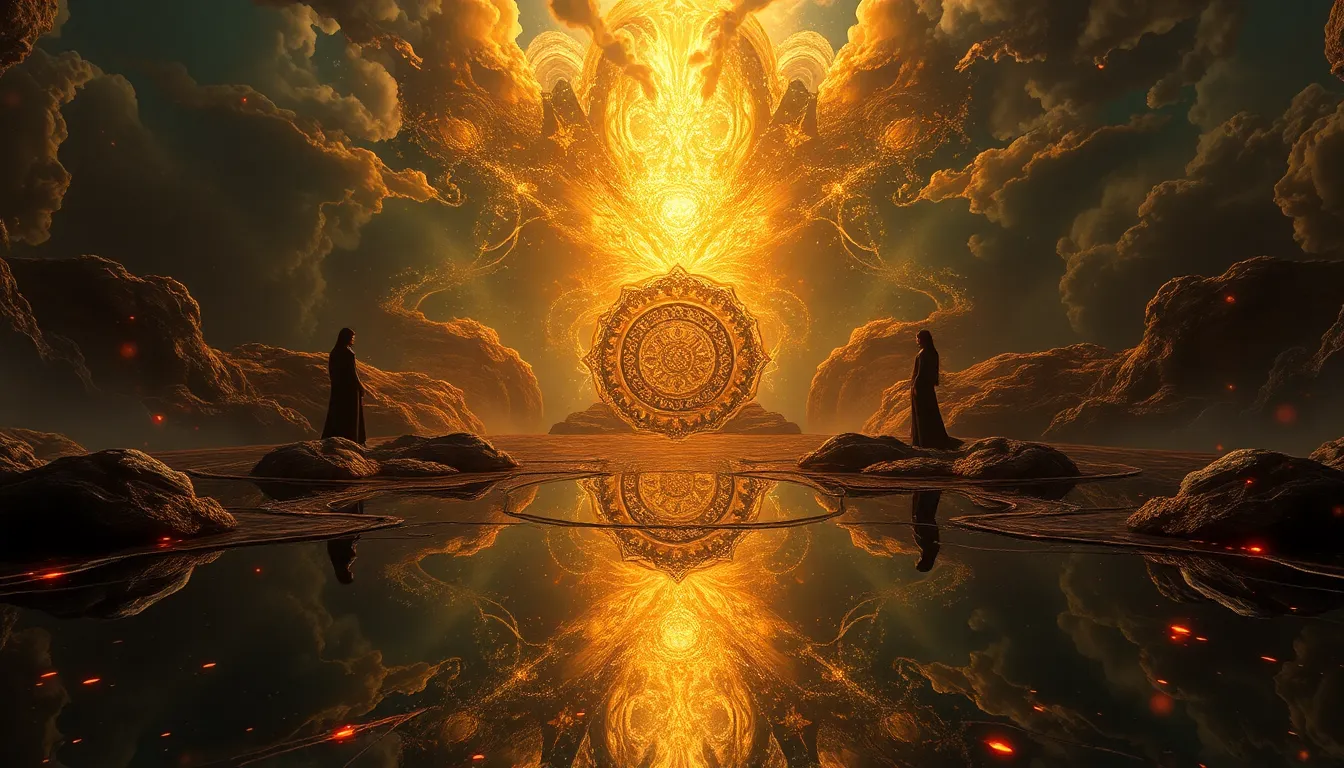The Legend of Dangun and the Heavenly Sword
In the realm of Korean mythology, the tale of Dangun, the legendary founder of ancient Korea, is intertwined with the mystical Heavenly Sword, a symbol of power and authority. This sword, gifted from the heavens, plays a crucial role in Dangun's rise to power and the establishment of the first Korean kingdom, Gojoseon.
The legend of Dangun and the Heavenly Sword transcends simple storytelling; it embodies the very essence of Korean identity. This mythical weapon represents not only the strength and resilience of the Korean people but also their profound connection to the divine powers of the universe. It's a powerful reminder of the rich history and heritage that defines Korean culture.
Dangun, the Founder of Korea
According to Korean mythology, Dangun was born from the union of Hwanung, the son of the Heaven God, and Ungnyeo, a bear who transformed into a human. Dangun, with his divine lineage and earthly wisdom, became a revered figure, credited with establishing the first Korean kingdom, Gojoseon, in 2333 BCE, near the present-day city of Pyongyang.
Dangun, a skilled leader and wise ruler, is depicted in the legends as a benevolent figure who guided his people towards prosperity and harmony. He established laws, promoted agriculture, and fostered a culture of peace and understanding. His reign marked the beginning of organized Korean society and represents the dawn of Korean civilization.
The Mythical Sword: A Symbol of Power and Authority
The Heavenly Sword, a prominent element in Dangun's legend, is much more than a mere weapon. It symbolizes the divine authority granted to him by the heavens, signifying his legitimacy as a ruler and his connection to the divine realm. The sword represents Dangun's strength, power, and ability to protect his people from harm.
In the context of Korean mythology, the Heavenly Sword transcends its physical form to become an embodiment of national sovereignty and identity. It represents the Korean people's strength, resilience, and unwavering determination to protect their land and culture.
The Sword’s Origins: A Gift from Heaven
The Heavenly Sword, as its name suggests, is said to have been a gift from the heavens. According to the legend, the sword was bestowed upon Dangun by his father, Hwanung, as a symbol of his divine lineage and a testament to his rightful claim to rule the land.
The sword's celestial origins add a layer of mystique and power to the legend. It underscores the importance of divine favor and the belief that Dangun was chosen by the heavens to lead his people. The Heavenly Sword becomes an emblem of Dangun's extraordinary birth and his destiny to establish a powerful and prosperous nation.
The Sword’s Role in Dangun’s Reign
The Heavenly Sword played a crucial role in Dangun's reign. It served as a symbol of his authority, a tool for maintaining order and a representation of his divine right to rule. When Dangun wielded the sword, it was a reminder to his people of his power and legitimacy.
The Heavenly Sword was not merely a weapon of war, but rather a symbol that inspired reverence and loyalty. Its presence in the hands of Dangun conveyed a sense of security and stability, reassuring his people that they were under the protection of a divinely empowered leader.
The Sword’s Legacy: A Symbol of Korean Identity
The Heavenly Sword, despite its mythical roots, has a lasting impact on Korean culture and national identity. Its symbolic significance continues to resonate with Koreans, representing their resilience, strength, and heritage. This legendary weapon serves as a reminder of the deeply rooted history and the enduring spirit of the Korean people.
The story of Dangun and the Heavenly Sword is woven into the fabric of Korean mythology and folklore. It is featured in numerous historical texts, literary works, and artistic expressions, cementing its place as a potent symbol of Korean heritage. The sword represents a shared history and a collective sense of identity, uniting Koreans across generations.
The Sword’s Disappearance: A Mystery of History
While the legend of Dangun and the Heavenly Sword is widely known, the actual fate of the sword remains shrouded in mystery. There is no concrete evidence to prove its existence, and historians are left to ponder its disappearance. Some believe that the sword might have been lost or destroyed over centuries, while others theorize that it might be hidden somewhere, awaiting rediscovery.
The lack of physical evidence surrounding the Heavenly Sword only adds to its mystique and legendary status. It fuels speculation and encourages further investigation, keeping the story alive and relevant. The mystery of the sword's whereabouts adds a layer of intrigue and wonder to the already captivating myth.
Theories on the Sword’s Location: Archaeological and Historical Perspectives
Archaeologists and historians have explored various theories about the possible location of the Heavenly Sword. Some speculate that it might be buried somewhere near the site of Gojoseon, the ancient kingdom founded by Dangun. Others believe that it might be hidden within a royal tomb or a sacred temple, patiently waiting to be uncovered.
Although the chances of finding the Heavenly Sword are slim, the search remains an exciting endeavor for those fascinated by Korean history and mythology. The ongoing quest for the legendary weapon fuels research and investigation, providing valuable insights into Korea's ancient past.
The Sword as a Source of Inspiration in Korean Art and Literature
The Heavenly Sword has served as a potent source of inspiration in Korean art and literature. Its mythical origins and symbolic significance have been explored in various forms of creative expression, including paintings, sculptures, and literary works.
For centuries, Korean artists have depicted the Heavenly Sword in their creations, capturing its power and mystique. These artistic representations serve as visual reminders of the legend and its enduring influence on Korean culture. In literature, authors have woven the story of Dangun and the Heavenly Sword into their narratives, adding depth and complexity to their stories.
The Enduring Power of the Legend: The Sword as a Symbol of Korean Heritage
The legend of Dangun and the Heavenly Sword continues to resonate with Koreans today. It serves as a powerful symbol of national identity, reminding people of their shared history and heritage. The story inspires a sense of pride and belonging, fostering a connection to the past and a sense of hope for the future.
Despite the lack of physical evidence, the Heavenly Sword remains a vital part of Korean mythology and culture. Its enduring power rests not in its physical existence, but in its symbolic representation of strength, resilience, and national pride. The story of Dangun and the Heavenly Sword is a testament to the enduring power of myths and legends to inspire, unite, and define a nation's identity.
FAQ
Q: Is the Heavenly Sword real?
A: The Heavenly Sword is a mythical object, and there is no concrete evidence to prove its existence.
Q: Where is the Heavenly Sword located?
A: The whereabouts of the Heavenly Sword remain unknown. There are theories about its potential locations, but no conclusive evidence has been found.
Q: What is the significance of the Heavenly Sword?
A: The Heavenly Sword is a symbol of divine authority, power, and Korean national identity. It represents the strength, resilience, and heritage of the Korean people.
Q: How is the Heavenly Sword depicted in Korean art and literature?
A: The Heavenly Sword has been featured in numerous paintings, sculptures, and literary works, showcasing its mythical origins and symbolic importance in Korean culture.



